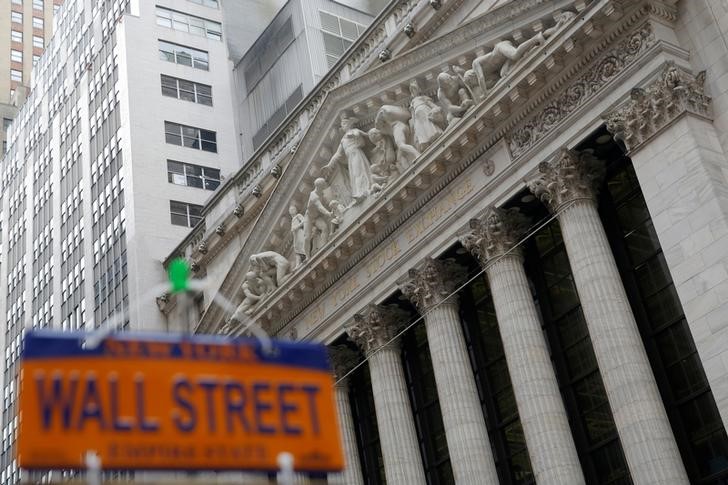(Bloomberg) -- The U.S. government is hammering home the message to Wall Street banks that it’s okay to dial up the risk when lending to companies.
Two regulators, including Federal Reserve Chairman Jerome Powell, separately said this week they are lightening up on guidelines that limited lending to companies with big debt loads. The comments follow an appeals court decision that looks set to make it cheaper for money managers to bundle corporate loans into bonds -- a ruling some say could increase the flow of credit for private equity buyouts and other highly indebted corporations.
The government is loosening its reins after companies have been on a decade-long borrowing spree, fueled in part by interest rates that have been close to zero. Outstanding loans to highly indebted companies, known as leveraged loans, have grown about 70 percent to nearly $1 trillion since the end of 2007, S&P/LSTA data show. Junk bonds outstanding have more than doubled over that time, Bloomberg Barclays (LON:BARC) index data show. Debt has been growing far faster than the U.S. economy, which is about a third bigger than at the end of 2007, according to gross domestic product data compiled by Bloomberg.
“The leveraged loan market is already awash in capital,” Andrew Curtis, head of the investment team for Z Capital Credit Partners, said. “These developments will likely drive further excesses in leveraged lending.”
There’s been plenty of excess lately. Protections for junk-bond investors had been steadily weakening for nine months as of January, according to Moody’s Investors Service. Prices on leveraged loans have continued rising as investors pile into debt that is perceived as safer than junk bonds. And risk premiums have been narrowing to their lowest levels since 2014. That’s raising questions about how the markets fare in a year where U.S. interest rates could rise four times, which Powell also opened the door to.
A representative for the OCC declined to comment. An email and call to representatives for the Federal Reserve weren’t immediately returned.
Powell and U.S. Comptroller of the Currency Joseph Otting said Tuesday that the guidance their agencies had previously offered regarding corporate borrowing was just meant to be a guideline, and not a hard and fast rule.
The lending guidance, issued in 2013 in the aftermath of the financial crisis, had been interpreted by banks to mean any loan that left a company with debt equal to six times a measure of earnings would attract heavy scrutiny from regulators. Last fall, the Government Accountability Office said that Congress should review the guidelines, leaving their applicability in question. That was followed by banking regulators telling Congress that they plan to reissue guidelines that previously forced regulated banks to shun risky deals.
“In the case of the leverage lending guidance, we do accept and understand that’s non-binding guidance,” Powell said during his testimony to lawmakers this week. “We’ve made it a point to go out and make sure that that message is getting out to supervisors of banks. And we’re in discussions and thinking about other ways we can underscore that -- perhaps putting it out for further comment.”
‘Broad Implication’
The message follows a U.S. appeals court ruling last month that said that securities called collateralized loan obligations, backed by leveraged loans, are exempt from another set of post-crisis rules. Those regulations required managers to own a 5 percent portion of the securities they were selling.
Since the ruling, investors and lawyers have discussed whether other forms of repackaged debt may also be exempt from 5 percent retention rules. The court’s ruling can still be appealed.
“I do expect it will have broad implication on other asset classes well beyond just CLOs,” said Michael Barnes, co-chief investment officer at Tricadia Capital LLC in New York. “If you’re not being forced to retain the risk, you may be more willing to make riskier loans and securitize them to sell to others. That is a negative implication of rolling back.”
Record Markets
This all comes as the markets for both leveraged loans and collateralized loan obligations have by some measures been breaking post-crisis records in recent weeks, driven by demand for securities that benefit as interest rates rise.
Risk premiums for leveraged loans, or the extra yield over benchmarks that investors earn, have fallen close to post-crisis lows. In January, investors got 3.4 percentage points of yield above the London interbank offered rate, the lowest since January 2014, according to data compiled by Bloomberg. Meanwhile, recent collateralized loan deals have also hit milestones, with deals including one by CIFC LLC pricing its highest-rated tranches at 1 percentage point above Libor earlier this year, a post-crisis record low for a new deal.
